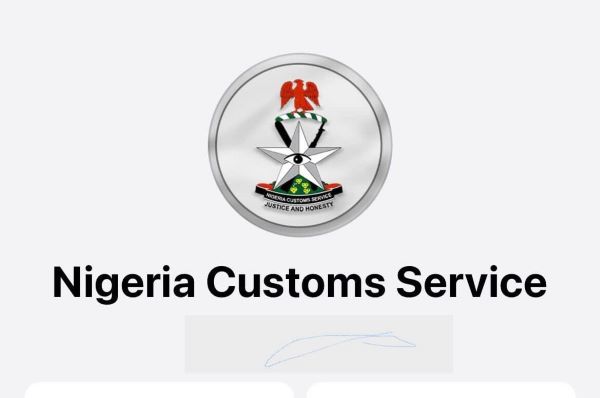The recent launch of the Nigeria Foreign Exchange Code (FX Code) by the Central Bank of Nigeria (CBN) signals a new era in the country’s financial sector. As Nigeria grapples with foreign exchange volatility and economic uncertainties, the FX Code is positioned as a structured and enforceable framework designed to restore transparency, stability, accountability, and efficiency in forex transactions.
At the unveiling ceremony in Abuja last week, CBN Governor Olayemi Cardoso emphasized that the initiative is more than just a guideline—it is a commitment to ethical conduct and good governance within the foreign exchange market. “The FX Code is not just a set of recommendations,” Cardoso declared. “It is an enforceable framework that will guide market participants towards ethical practices and ensure that Nigeria’s forex market operates on a foundation of trust and accountability.”
Nigeria’s foreign exchange market has long suffered from multiple exchange rates and opaque dealings that benefited a privileged few at the expense of the broader economy. The accumulation of a $7 billion FX backlog, which took over a year to verify, brought to light numerous unethical and illegal practices that weakened investor confidence and market integrity.
According to the CBN and the regulated financial institutions, the FX Code represents a decisive step forward, setting clear and enforceable standards for ethical conduct, transparency, and good governance in the Nigerian foreign exchange market. Cardoso sees it as a firm signal that business-as-usual will no longer suffice. For him and many others, it is also a blueprint for the future, grounded in the hard lessons of the past.
The FX Code is built on six core principles — ethics, governance, execution, information sharing, risk management and compliance, and confirmation and settlement processes. These pillars align with international best practices while addressing Nigeria’s unique market dynamics. Built in collaboration with commercial banks, Mr Cardoso said the FX Code marks a new era of compliance and accountability.
Through forensic verification, authorities uncovered systemic abuses, highlighting the urgent need for a regulatory overhaul. The FX Code directly responds to these challenges by establishing clear rules and mechanisms that prevent manipulation and ensure that foreign exchange transactions are conducted fairly. “The forensic verification process is near completion, and final settlements will be processed accordingly,” Cardoso stated, reaffirming the CBN’s commitment to resolving outstanding forex obligations in a manner that prioritizes transparency and accountability.
One would not forget where the CBN and indeed the financial sector is coming from. The era of multiple exchange rates, which created privileges for a select few at the expense of most Nigerians, severely undermined market integrity. As an example, the $7bn of FX backlogs that has taken over 12 months to verify has led to the discovery of multiple unethical and even illegal practices that Nigeria needs not be proud of as a nation in search of self-discovery and major player in the global market.
Mr Cardoso said the forensic verification process – to unveil the true picture of the controversial foreign exchange backlog vis-vise legitimate claims – is now near complete, and final settlements would be processed accordingly.
Cardoso used the gathering to restate that the period of unprecedented ways-and-means-financing of the former administration inflicted significant damage on the economy, contributing to inflation, currency depreciation, and eroded public confidence.
While it’s impossible to roll back the time when many “atrocities” were allowed to define market operation in Nigeria, Mr Cardoso warns that “These practices must never return. The FX Code is a firm rejection of such distortions and an equally firm commitment to a future defined by fairness, trust and market driven principles.”
Governor is clear about is that: the system itself played a key role in the challenges of the past. For him, unethical behaviours and systemic abuses – whether by those with privileged access or by complicit participants – eroded public trust and harmed our economy. “We will not tolerate any attempts to revert to those practices. Any individual or institution that violates the FX Code will face swift and decisive sanctions,” he declared at the signing of the code of operation for the FX market.
“Under CBN Act 2007 and BOFIA Act 2020, violations will be met with penalties and administrative actions. Market participants must recognize that adherence to these principles is not merely about compliance but about restoring public trust in our financial system,” the CBN Governor said at the launch of the enforceable framework in Abuja yesterday.
“Let me reiterate: the era of opaque practices is over. We will not hesitate to act against any institution or individual that undermines the integrity of our financial markets. The FX Code is a binding commitment to accountability and transparency—and we must all play our part,” Mr Cardoso stated at the event that was attended by virtually all the chief executive officers of the banks.
The financial sector has thrown its weight behind the FX Code, recognizing its potential to stabilize the forex market and enhance investor confidence. The signing ceremony was attended by chief executives of banks, reinforcing the industry’s collective commitment to implementing the code.
Chairman of Zenith Bank Plc, Jim Ovia described the initiative as a “masterstroke” with the potential to restore credibility, create equal opportunities for market participants, and foster stability. Similarly, Oliver Alawuba, Managing Director of United Bank for Africa (UBA), noted that the FX Code complements broader reforms and will enhance accountability and efficiency within the forex market.
“The strength of any financial market lies in the integrity of its participants,” Alawuba stated. “With the Nigeria FX Code, we now have a unified platform to reinforce our commitment to fairness, ethical behavior, and professionalism.” Self-regulation and conduct are at the core of the changes in culture everyone now expects to see at play in the industry.
The FX Code is part of a broader set of economic reforms introduced under Governor Cardoso’s leadership. Key policy shifts, including the unification of exchange rate windows, the discontinuation of quasi-fiscal interventions, and adjustments in monetary policy tools, aim to eliminate distortions and create a more predictable economic environment.
The introduction of the Electronic Foreign Exchange Matching System (EFEMS) in December 2024 has significantly improved market transparency. The naira, which traded at ₦1,663.90 per dollar in early December 2024, has since appreciated to ₦1,536.72 following the implementation of reforms. External reserves have also grown by 12.74%, reaching $40.68 billion at the end of 2024.
Governor Cardoso emphasized that exchange rate stability remains a priority, as it impacts inflation, trade, foreign investment, and overall economic growth. “All these indicators of progress are the direct result of our commitment to reform and the collective efforts of all stakeholders,” he said.
For the monetary authorities, these factors collectively shape the economic welfare of our nation and people. Inflation in particular remains a critical challenge as rising prices erode purchasing power and increase the cost of living—but by fostering exchange rate stability, we are tackling this issue head-on.
If you ask the CBN Governor, he would tell you that the FX Code is not merely a policy change but a framework for long-term market discipline. Its success depends on the commitment of financial institutions, compliance officers, and regulators to uphold its principles. The CBN has made it clear that adherence to the FX Code is mandatory, with consequences for non-compliance.
“The era of opaque practices is over,” Cardoso reiterated. “We will not hesitate to act against any institution or individual that undermines the integrity of our financial markets.”
Industry stakeholders are expected to lead the transition by embedding the code’s principles within their operations and ensuring compliance at all levels. The expectation is that the FX Code will influence not just foreign exchange dealings but broader financial sector practices, reinforcing ethical standards across the industry.
The launch of the Nigeria Foreign Exchange Code marks a pivotal moment in the country’s economic landscape. By instituting enforceable guidelines, the CBN is taking decisive action to restore order and credibility to the forex market. The FX Code represents a commitment to transparency, fair play, and ethical conduct, setting the stage for a more stable and investor-friendly financial system.
With strong backing from industry leaders and a firm stance from regulators, Nigeria’s forex market is poised for transformation. The challenge now lies in sustaining compliance and ensuring that the gains made through these reforms translate into long-term economic stability and growth.

 3 hours ago
1
3 hours ago
1















 English (US) ·
English (US) ·